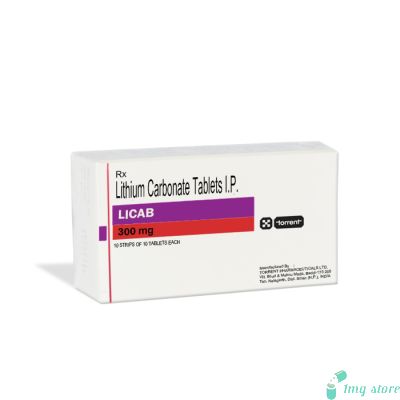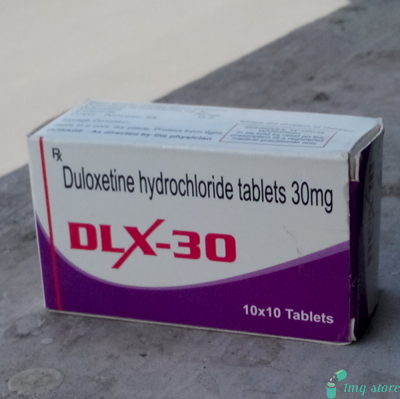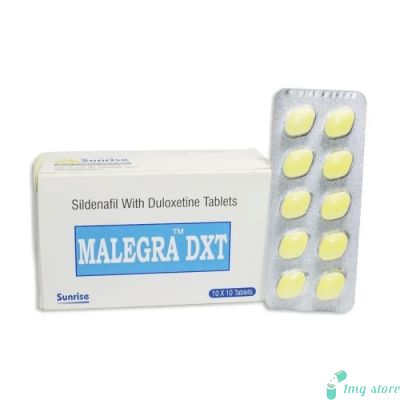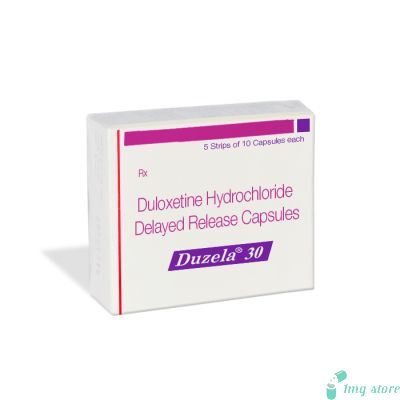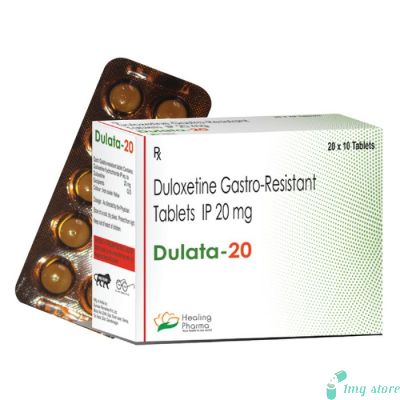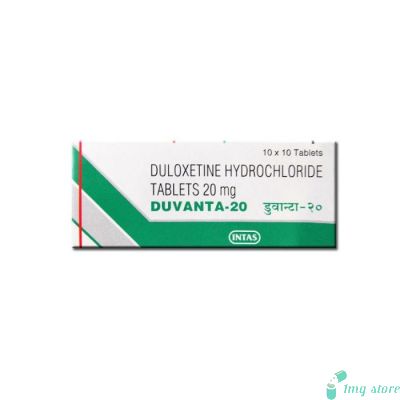Intalith CR Tablet (Lithium Carbonate)
Intalith CR Tablet contains Lithium, which is classified as an anti-manic agent. It is primarily used in the treatment of bipolar disorder, which includes both manic and depressive episodes. Intalith CR is also utilized for managing or controlling hypomania, which is a less severe form of mania, as well as aggressive or self-harming behaviors.
Intalith CR tablet is a medication that contains lithium carbonate as its active ingredient. Lithium carbonate is a mood stabilizer that is primarily used in the treatment of bipolar disorder. It works by affecting certain chemicals in the brain to stabilize mood and reduce the severity and frequency of manic episodes.
Intalith CR is an extended-release formulation, which means that the medication is released slowly over time, providing a consistent and controlled release of lithium carbonate into the body. This allows for once-daily dosing, as opposed to multiple doses throughout the day.
The tablet is usually taken orally and should be swallowed whole without crushing or chewing it. It is important to follow the instructions provided by your healthcare provider or the medication label regarding the dosage and timing of Intalith CR.
It is important to note that lithium therapy requires close monitoring, as the optimal dosage varies from person to person. Regular blood tests may be necessary to ensure that the lithium levels in the blood are within the therapeutic range. This monitoring helps to minimize side effects and maximize the effectiveness of the medication.
Common side effects of Intalith CR may include nausea, diarrhea, tremors, increased thirst, increased urination, weight gain, and changes in appetite. It is essential to report any unusual or severe side effects to your healthcare provider.
Intalith CR should only be taken under the supervision and prescription of a qualified healthcare professional, who will assess your individual condition and determine the appropriate dosage for you. It is important to discuss your medical history and any other medications you are taking with your healthcare provider before starting Intalith CR to ensure its safety and effectiveness.
This information is a general overview and does not replace the advice of a healthcare professional. Always consult your doctor or pharmacist for personalized guidance and specific information about Intalith CR tablet (Lithium Carbonate).
Intalith CR tablet (Lithium Carbonate) offers several benefits for individuals with bipolar disorder and certain other conditions. Here are some potential benefits of Intalith CR:
Mood Stabilization: Intalith CR is primarily used as a mood stabilizer to help manage bipolar disorder. It can help reduce the severity and frequency of manic episodes, which are characterized by elevated mood, excessive energy, and impulsive behavior. By stabilizing mood, Intalith CR can promote a more balanced emotional state.
Bipolar Disorder Management: Intalith CR is considered a first-line treatment for bipolar disorder, both in acute episodes and for long-term maintenance. It can help prevent or lessen the intensity of manic and depressive episodes, providing greater stability in mood and reducing the disruption caused by mood swings.
Extended Release Formulation: Intalith CR is formulated as an extended-release tablet, allowing for once-daily dosing. This convenience can improve medication adherence, as it eliminates the need for multiple daily doses. The controlled release of lithium carbonate also helps maintain consistent blood levels of the medication.
Long-Term Stability: Lithium carbonate has been used for many years and has a well-established track record in the management of bipolar disorder. It has shown efficacy in stabilizing mood over the long term and reducing the risk of relapse into manic or depressive episodes.
Augmentation Therapy: In some cases, Intalith CR may be used in combination with other medications to enhance their effectiveness in treating bipolar disorder. It can act as an augmenting agent, providing additional symptom relief and improving overall treatment outcomes.
When using Intalith CR tablet (Lithium Carbonate), it is important to take certain precautions to ensure safe and effective use of the medication. Here are some precautions to consider:
Medical History: Inform your healthcare provider about your complete medical history, including any pre-existing medical conditions, such as kidney, heart, or thyroid problems. Also, disclose any history of allergies or adverse reactions to medications.
Medication Interactions: Provide a comprehensive list of all the medications you are currently taking, including prescription drugs, over-the-counter medications, and herbal supplements. Some medications may interact with Intalith CR and affect its effectiveness or increase the risk of side effects. Your healthcare provider can review the potential interactions and adjust your medication regimen accordingly.
Pregnancy and Breastfeeding: If you are pregnant, planning to become pregnant, or breastfeeding, discuss the potential risks and benefits of using Intalith CR with your healthcare provider. Lithium carbonate may pose risks to the developing fetus or be excreted in breast milk, and the decision to use the medication should be made in consultation with your healthcare provider.
Blood Monitoring: Regular blood tests will be required to monitor lithium levels in your blood. These tests help ensure that the medication is within the therapeutic range and reduce the risk of toxicity. Follow your healthcare provider's instructions for scheduling and attending these blood tests.
Dehydration: Lithium carbonate can affect the body's water and electrolyte balance. It is important to maintain proper hydration by drinking an adequate amount of fluids, especially in hot weather or during activities that cause excessive sweating. Dehydration can increase the risk of lithium toxicity.
Sodium Intake: Your healthcare provider may advise you to maintain a consistent level of sodium intake in your diet. Significant changes in sodium levels can affect how your body responds to lithium. Follow your healthcare provider's recommendations regarding dietary sodium.
Driving and Operating Machinery: Intalith CR may cause drowsiness, dizziness, or tremors in some individuals. If you experience these effects, avoid activities that require mental alertness, such as driving or operating heavy machinery, until you know how the medication affects you.
Suicide Risk: Some individuals with bipolar disorder may be at an increased risk of suicidal thoughts or behavior. Regularly communicate with your healthcare provider about any changes in mood, worsening depression, or suicidal thoughts.
It is essential to closely follow the instructions and guidance provided by your healthcare provider regarding the precautions associated with Intalith CR. They will consider your individual circumstances and tailor the precautions accordingly to ensure the safe and effective use of the medication.
Intalith CR tablet (Lithium Carbonate) has several uses primarily related to the management of bipolar disorder. Here are some common uses of Intalith CR:
Bipolar Disorder: Intalith CR is widely prescribed as a mood stabilizer for individuals diagnosed with bipolar disorder. It helps control and prevent manic episodes, reduce the severity and frequency of depressive episodes, and promote long-term stability in mood.
Manic Episodes: Intalith CR is effective in managing manic episodes associated with bipolar disorder. It can help reduce the intensity of manic symptoms, such as elevated mood, increased energy, impulsivity, and irritability.
Bipolar Maintenance Therapy: After the acute treatment of a manic or depressive episode, Intalith CR is often prescribed for long-term maintenance therapy. It helps prevent relapses and keeps mood swings under control, promoting overall stability in mood.
Bipolar Depression: Intalith CR may be used as an adjunctive treatment for bipolar depression, typically in combination with other medications. It can help alleviate depressive symptoms and prevent the shift to a manic episode.
Augmentation Therapy: In certain cases, Intalith CR is used as an augmenting agent alongside other medications. It can enhance the effectiveness of other mood stabilizers or antidepressants in managing bipolar disorder symptoms.
Common side effects of Intalith CR can include:
Gastrointestinal Issues: Nausea, vomiting, and diarrhea are common side effects of Intalith CR. Taking the medication with food or dividing the daily dose may help minimize these effects.
Increased Thirst and Urination: Intalith CR can lead to increased thirst and more frequent urination. It is important to stay hydrated by drinking plenty of fluids.
Tremors: Some individuals may experience hand tremors or shakiness while taking Intalith CR. These tremors are usually mild, but if they become severe or interfere with daily activities, it's important to consult your healthcare provider.
Weight Gain: Intalith CR has been associated with weight gain in some individuals. Monitoring your weight and discussing any significant changes with your healthcare provider is recommended.
Changes in Appetite: Intalith CR can affect your appetite, leading to either increased or decreased food intake. If you experience significant changes in appetite or weight, inform your healthcare provider.
Thyroid Abnormalities: In some cases, Intalith CR may affect thyroid function, leading to either hypothyroidism (underactive thyroid) or hyperthyroidism (overactive thyroid). Regular monitoring of thyroid function may be necessary during treatment.
Kidney Function: Prolonged use of lithium can affect kidney function in rare cases. Regular monitoring of kidney function through blood tests is typically conducted to ensure the medication is not causing any harm.
Other Potential Side Effects: Other less common side effects may include dizziness, fatigue, muscle weakness, cognitive difficulties, skin rash, and sensitivity to sunlight. If you experience any severe or persistent side effects, it is important to seek medical attention.
Q: What is Intalith CR used for?
A: Intalith CR is primarily used as a mood stabilizer in the treatment of bipolar disorder. It helps to reduce the severity and frequency of manic episodes and provides long-term stability in mood.
Q: How does Intalith CR work?
A: Intalith CR contains lithium carbonate, which works by affecting certain chemicals in the brain to stabilize mood. It helps to balance the levels of neurotransmitters and prevent extreme shifts in mood associated with bipolar disorder.
Q: How should I take Intalith CR?
A: Intalith CR is usually taken orally and should be swallowed whole without crushing or chewing it. It is an extended-release tablet designed for once-daily dosing. Follow the instructions provided by your healthcare provider or the medication label for the appropriate dosage and timing.
Q: Are there any side effects of Intalith CR?
A: Common side effects of Intalith CR may include nausea, diarrhea, tremors, increased thirst, increased urination, weight gain, and changes in appetite. It is important to report any unusual or severe side effects to your healthcare provider.
Q: How long does it take for Intalith CR to start working?
A: The onset of action of Intalith CR can vary from person to person. It may take several weeks to see the full effects of the medication. It is important to continue taking it as prescribed, even if you do not notice immediate changes in your symptoms.
Q: Can I drink alcohol while taking Intalith CR?
A: It is generally recommended to avoid or limit alcohol consumption while taking Intalith CR. Alcohol can interact with the medication and increase the risk of side effects such as drowsiness, dizziness, and impaired judgment.
Q: Can Intalith CR be used during pregnancy?
A: The use of Intalith CR during pregnancy should be carefully discussed with a healthcare provider. Lithium carbonate may pose risks to the developing fetus, and the decision to use the medication needs to consider the potential benefits and risks involved.
Q: Can I stop taking Intalith CR if I feel better?
A: No, you should not stop taking Intalith CR without consulting your healthcare provider. It is important to follow the prescribed treatment plan and discuss any changes or concerns with your healthcare provider. Abruptly stopping the medication can lead to a recurrence of symptoms.
Here are some examples of drug interactions associated with Intalith CR:
Nonsteroidal Anti-Inflammatory Drugs (NSAIDs): NSAIDs such as ibuprofen, naproxen, and diclofenac can increase the concentration of lithium in the blood, potentially leading to lithium toxicity. It is recommended to use these medications cautiously and under the guidance of a healthcare professional while taking Intalith CR.
Diuretics: Some diuretics, including thiazide diuretics like hydrochlorothiazide, can reduce the excretion of lithium by the kidneys, leading to increased lithium levels in the blood. Your healthcare provider may need to adjust your dosage of Intalith CR if you are prescribed diuretics.
ACE Inhibitors and Angiotensin Receptor Blockers (ARBs): These medications, commonly used for high blood pressure and certain heart conditions, may increase lithium levels in the blood. Regular monitoring of lithium levels is recommended when starting or stopping these medications.
Antidepressants and Antipsychotics: Certain antidepressants and antipsychotic medications can interact with lithium and affect its concentration in the blood. Combining these medications requires careful monitoring by your healthcare provider to ensure appropriate dosing and to minimize the risk of side effects.
Serotonin-Norepinephrine Reuptake Inhibitors (SNRIs) and Selective Serotonin Reuptake Inhibitors (SSRIs): Combining lithium with SNRIs or SSRIs can increase the risk of a rare but serious condition called serotonin syndrome. Symptoms of serotonin syndrome may include agitation, hallucinations, rapid heartbeat, fever, muscle stiffness, and tremors. Immediate medical attention should be sought if these symptoms occur.
Anticonvulsant Medications: Some anticonvulsant medications, such as valproate, can interact with lithium and require careful monitoring. Your healthcare provider will determine the appropriate dosages and monitor the levels of both medications in your blood.
| Manufacturer | : | Intas Pharma, India |
| Equivalent Brand | : | |
| Generic Search | : | Lithium Carbonate |









